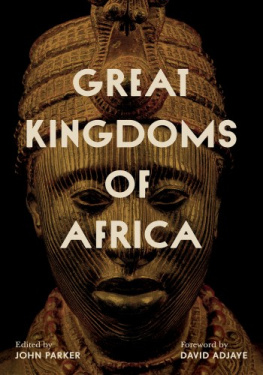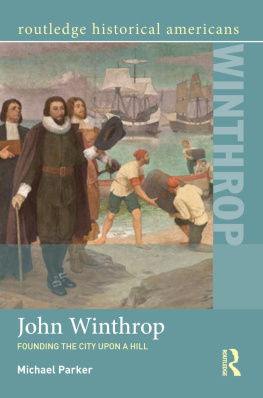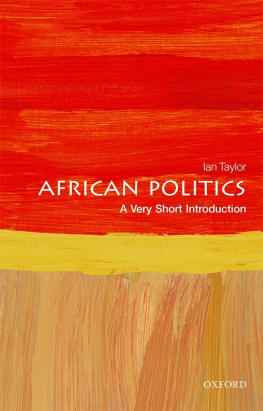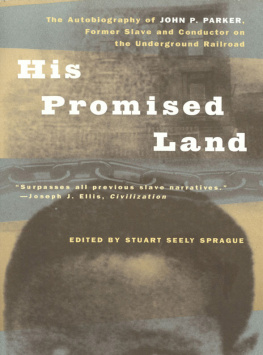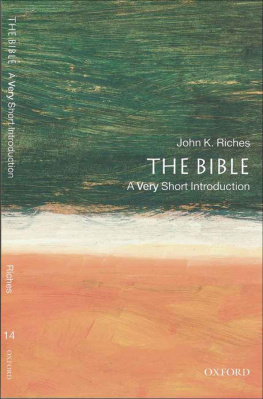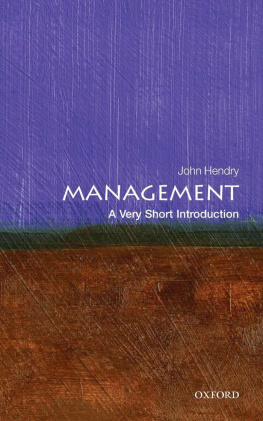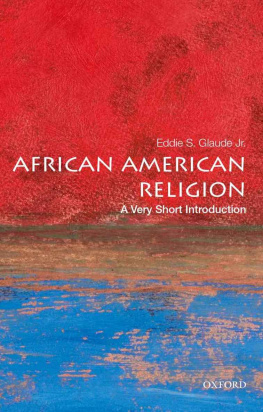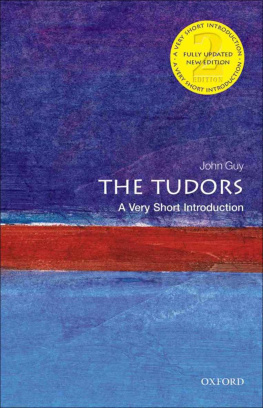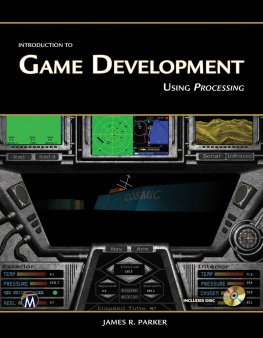Parker John - African history: a very short introduction
Here you can read online Parker John - African history: a very short introduction full text of the book (entire story) in english for free. Download pdf and epub, get meaning, cover and reviews about this ebook. City: UK;Oxford, year: 2007, publisher: Oxford University Press, genre: Religion. Description of the work, (preface) as well as reviews are available. Best literature library LitArk.com created for fans of good reading and offers a wide selection of genres:
Romance novel
Science fiction
Adventure
Detective
Science
History
Home and family
Prose
Art
Politics
Computer
Non-fiction
Religion
Business
Children
Humor
Choose a favorite category and find really read worthwhile books. Enjoy immersion in the world of imagination, feel the emotions of the characters or learn something new for yourself, make an fascinating discovery.

- Book:African history: a very short introduction
- Author:
- Publisher:Oxford University Press
- Genre:
- Year:2007
- City:UK;Oxford
- Rating:3 / 5
- Favourites:Add to favourites
- Your mark:
- 60
- 1
- 2
- 3
- 4
- 5
African history: a very short introduction: summary, description and annotation
We offer to read an annotation, description, summary or preface (depends on what the author of the book "African history: a very short introduction" wrote himself). If you haven't found the necessary information about the book — write in the comments, we will try to find it.
African history: a very short introduction — read online for free the complete book (whole text) full work
Below is the text of the book, divided by pages. System saving the place of the last page read, allows you to conveniently read the book "African history: a very short introduction" online for free, without having to search again every time where you left off. Put a bookmark, and you can go to the page where you finished reading at any time.
Font size:
Interval:
Bookmark:
John Parker and Richard Rathbone
A Very Short Introduction


Great Clarendon Street, Oxford ox2 6 DP
Oxford University Press is a department of the University of Oxford.
It furthers the Universitys objective of excellence in research, scholarship,
and education by publishing worldwide in
Oxford New York
Auckland Cape Town Dar es Salaam Hong Kong Karachi
Kuala Lumpur Madrid Melbourne Mexico City Nairobi
New Delhi Shanghai Taipei Toronto
With offices in
Argentina Austria Brazil Chile Czech Republic France Greece
Guatemala Hungary Italy Japan Poland Portugal Singapore
South Korea Switzerland Thailand Turkey Ukraine Vietnam
Oxford is a registered trade mark of Oxford University Press
in the UK and in certain other countries
Published in the United States
by Oxford University Press Inc., New York
John Parker and Richard Rathbone 2007
The moral rights of the authors have been asserted
Database right Oxford University Press (maker)
First published as a Very Short Introduction 2007
All rights reserved. No part of this publication may be reproduced, stored in a retrieval system, or transmitted, in any form or by any means, without the prior permission in writing of Oxford University Press, or as expressly permitted by law, or under terms agreed with the appropriate reprographics rights organizations. Enquiries concerning reproduction outside the scope of the above should be sent to the Rights Department, Oxford University Press, at the address above
You must not circulate this book in any other binding or cover and you must impose this same condition on any acquirer
British Library Cataloguing in Publication Data
Data available
Library of Congress Cataloging in Publication Data
Data available
Typeset by RefineCatch Ltd, Bungay, Suffolk
Printed in Great Britain by
Ashford Colour Press Ltd, Gosport, Hampshire
ISBN 9780192802484
1 3 5 7 9 10 8 6 4 2
The Mediterranean-centred world
akg-images
A house in Jenne
Casa das fricas, Brazil
Terracotta figure of a mounted warrior
Werner Forman Archive. Courtesy of Entwistle Gallery, London
Tuareg horsemen
Casa das fricas, Brazil
A signar, or woman of colour of Senegal
The British Library
A commando of National Party supporters
Photograph by David Goldblatt
Three officials of the Omani government of Zanzibar
The Humphrey Winterton Collection of East African Photographs, Melville J. Herskovits Library of African Studies, Northwestern University
President E. J. Roye of Liberia
The Library of Congress
Shaka Zulu
The British Library
Priests of the Ethiopian Orthodox Church
Mary Evans Picture Library
Translating the Bible in Abokobi, Gold Coast
Archives Mission 21: Basel Mission ref. QD-32.032.0005
Kuba royal statue
The Trustees of the British Museum
Capuchin missionary in the kingdom of Kongo
Biblioteca civica centrale di Torino, Sezione Manoscritti e rari
A slave coffle
The Library of Congress
Biography of Mahommah G. Baquaqua
The Library of Congress
Zanzibars ivory market
The Humphrey Winterton Collection of East African Photographs, Melville J. Herskovits Library of African Studies, Northwestern University
Mahdist commander Mahmud Ibn Ahmad
Mary Evans Picture Library
Apolo Kaggwa and Ham Mukasa
The National Portrait Gallery, London
Laying railway tracks in the Belgian Congo
Mary Evans Picture Library
Saint-Louis, Senegal, 1900
Casa das fricas, Brazil
King Njoya of Bamum
Archives Mission 21: Basel Mission ref. E-30.29.048
A student at Yaba College, Lagos
By permission of the Syndics of Cambridge University Library
Voting in Accra
By permission of the Syndics of Cambridge University Library
Demonstration in Southern Rhodesia
SVT Bild/Das Fotoarchiv
The Battle of Algiers
Rialto Pictures/Photofest
African American politics in Harlem
The Library of Congress
Dancers in Johannesburg
Photograph by Jrgen Schadeberg
UNITA in Huambo
Fred Bridgland/Hulton Archive/Getty Images
Le chef, by Samuel Fosso
Courtesy of J. M. Patras, Paris
The publisher and the authors apologize for any errors or omissions in the above list. If contacted they will be pleased to rectify these at the earliest opportunity.
Africa: main physical features
The present-day nation-states of Africa
The Middle Niger region of West Africa
The idea of Africa
This book is a very short introduction to a very big topic. In fact, it is a very short introduction to two very big topics. On the one hand, it is about a place and its people: Africa. On the other, it is about the past of that place, as it has been envisaged by Africans and written about by historians. The sheer scale of both place and past is colossal. Africa: an entire continent, in terms of language and culture the worlds most diverse, stretching from the southern shores of the Mediterranean to the Cape of Good Hope and today comprising over 50 separate nations. The cradle of mankind, where humans first evolved and from where they fanned out to settle the earth, Africa also possesses a recoverable history stretching back five millennia to the earliest of the worlds ancient civilizations, that of pharaonic Egypt.
To provide even the sparest chronological outline of this history as it unfolded across the diverse regions of the continent is way beyond our scope here. Besides, it would be as dry as the dust that each year the harmattan wind blows south from the Sahara desert, discolouring skies from Senegal to Sudan. There are already many volumes that provide overviews of African history, or of different parts of it. We recommend a selection of these at the end of the book. Rather, our aim is to reflect upon the changing ways that the African past has been imagined and represented. That said, we have not focused exclusively on history as the representation of the past to the exclusion of history as a sequence of actual events. Our arguments are illustrated by a range of events and processes drawn from across the continent, as well as from the African diaspora beyond its shores. From these examples, hopefully, will emerge some of the main issues, problems, and debates that have arisen from the study of the African past. These issues are critical not just for an understanding of Africa, but for an understanding of the entire discipline of history.
Neither is it simply the physical immensity of Africa coupled with the great depth and diversity of its past that makes our topic such a challenging one. It is also because the notion of African history itself has been so controversial and contested: dismissed as unimportant by some, embraced as an ideological weapon by others, and all the time stubbornly resistant to precise definition. This last point may appear strange. Africa, as we have just stated, is a continent, and its past is what constitutes African history. But does a continent possess a history? It is almost inconceivable that a book similar to this will be written on, say, Asian history or European history. Underlying the idea of a singular African history is the assumption that the continent possesses some kind of essential unity beyond the mere geographic, a unity that not only binds it together but that also sets it apart from other parts of the world.
Font size:
Interval:
Bookmark:
Similar books «African history: a very short introduction»
Look at similar books to African history: a very short introduction. We have selected literature similar in name and meaning in the hope of providing readers with more options to find new, interesting, not yet read works.
Discussion, reviews of the book African history: a very short introduction and just readers' own opinions. Leave your comments, write what you think about the work, its meaning or the main characters. Specify what exactly you liked and what you didn't like, and why you think so.

